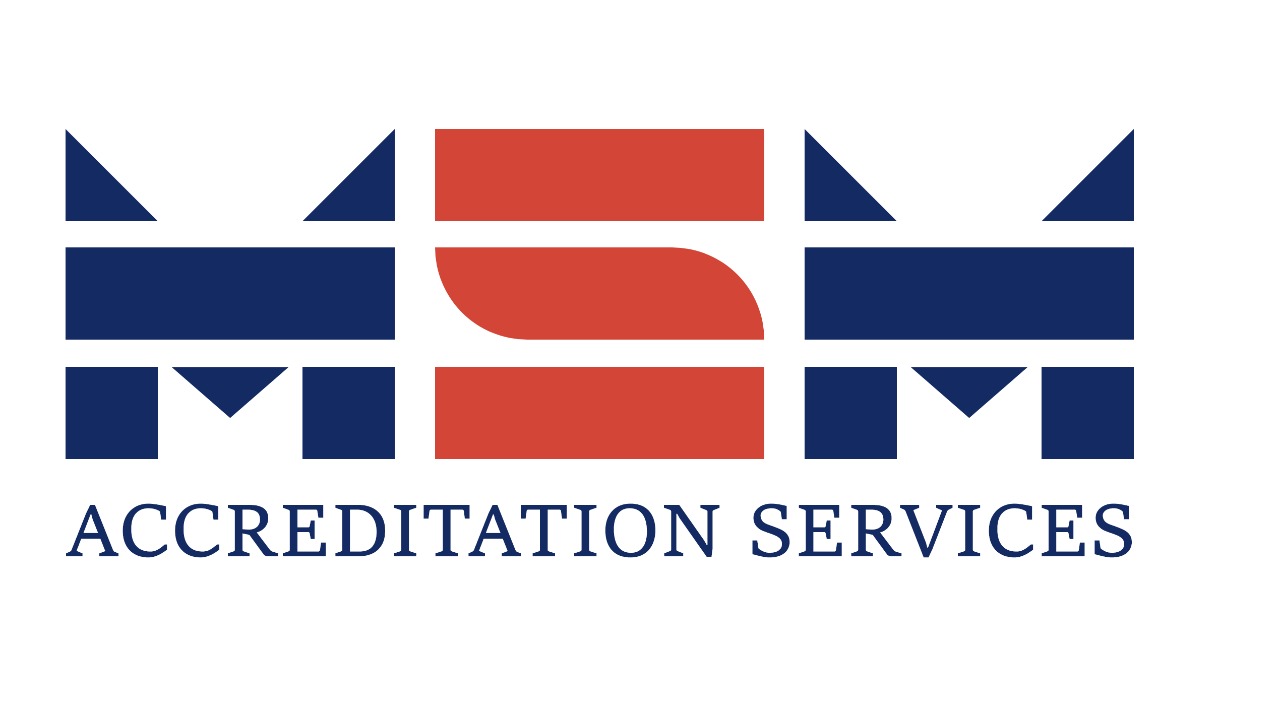This blog will delve into the significance of accreditation services in New Jersey, highlighting the role of MSM Accreditation Services in ensuring compliance and excellence. From healthcare institutions to educational establishments, accreditation serves as a beacon of trust and quality assurance.
Let us explore the importance and benefits of accreditation services while showcasing the value offered by MSM Accreditation Services.
Understanding Accreditation Services
Accreditation: An Overview
Accreditation is a process through which organizations undergo a comprehensive evaluation to ensure they meet specified criteria and standards. It provides external validation of an organization’s ability to deliver high-quality services and adhere to industry best practices. Accreditation is commonly sought after in sectors such as healthcare, education, and various professional fields. It instills confidence among stakeholders, including patients, students, employers, and regulatory bodies.
Benefits of Accreditation
Accreditation brings numerous advantages to organizations and the communities they serve. Some key benefits include:
Enhanced Quality and Patient/Student Safety: Accreditation promotes the adoption of best practices, protocols, and safety measures, leading to improved quality of services. In healthcare, for instance, accreditation ensures that medical facilities meet rigorous standards, reducing the risks associated with patient care. Similarly, educational institutions with accreditation provide students with a conducive learning environment that meets recognized standards.
Competitive Edge: Accreditation sets organizations apart from their competitors. Being accredited demonstrates a commitment to excellence and quality, instilling confidence in stakeholders. Accredited organizations are often preferred choices for patients, students, and customers, leading to increased market share and reputation.
Regulatory Compliance: Accreditation helps organizations meet regulatory requirements imposed by governmental bodies. It ensures adherence to industry-specific laws, regulations, and guidelines, mitigating legal and compliance risks.
Continuous Improvement: Accreditation fosters a culture of continuous improvement within organizations. The evaluation process identifies areas for enhancement and offers recommendations for refinement. Accredited organizations are encouraged to implement these suggestions, leading to ongoing advancement and innovation.
The Accreditation Process
The accreditation process can vary depending on the industry and the specific accreditation body involved. However, it generally involves several key steps. Let’s explore the typical accreditation process and how MSM Accreditation Services facilitates organizations through each stage.
Initial Assessment and Readiness
The first step in the accreditation process is assessing an organization’s readiness for accreditation. MSM Accreditation Services conducts a comprehensive evaluation of the organization’s current practices, policies, and procedures. They identify any gaps or areas that need improvement to meet accreditation standards. This initial assessment helps organizations understand the requirements and expectations of the accreditation process.
Development of Accreditation Plan
Once the initial assessment is complete, MSM Accreditation Services collaborates with the organization to develop a customized accreditation plan. This plan outlines the steps, timelines, and resources required to achieve accreditation. It serves as a roadmap for the organization to navigate the accreditation process efficiently.
Documentation and Compliance
Accreditation bodies typically require organizations to provide extensive documentation to demonstrate compliance with the established standards. MSM Accreditation Services assists organizations in preparing and organizing the necessary documentation, ensuring that all requirements are met. They review existing policies and procedures, identify gaps, and provide recommendations for improvement. By ensuring comprehensive documentation, MSM Accreditation Services helps organizations present a strong case for accreditation.
On-Site Evaluation
Many accreditation processes involve an on-site evaluation by trained professionals. These evaluators visit the organization to assess its operations, observe practices, and interview staff members. MSM Accreditation Services supports organizations throughout the on-site evaluation process, guiding them on how to prepare for the visit and ensuring that they are well-prepared to demonstrate compliance with the standards. They provide valuable insights and advice to help organizations succeed during the evaluation.
Post-Evaluation Follow-Up
Following the on-site evaluation, MSM Accreditation Services assists organizations in addressing any identified areas for improvement. They help organizations develop and implement action plans to close any gaps and ensure compliance with the standards. This post-evaluation follow-up is crucial for organizations to strengthen their operations and make the necessary changes to meet accreditation requirements.
Accreditation Decision and Maintenance
After completing the evaluation process, the accreditation body reviews the organization’s documentation, on-site evaluation report, and compliance with the standards. Based on the evaluation, the accreditation body makes a decision regarding accreditation status. If accredited, the organization receives a certification or accreditation seal, signifying its commitment to excellence and compliance. MSM Accreditation Services continues to support organizations in maintaining their accreditation status by providing ongoing monitoring, training, and assistance in meeting accreditation requirements.
The Value of Accreditation Services

Accreditation services, such as those provided by MSM Accreditation Services, offer significant value to organizations and the stakeholders they serve. Here are some key aspects highlighting the value of accreditation services:
Trust and Credibility
Accreditation serves as a mark of trust and credibility for organizations. When stakeholders, such as patients, students, customers, or regulatory bodies, see that an organization is accredited, they have confidence in the organization’s ability to deliver high-quality services. Accreditation validates an organization’s commitment to meeting industry standards and best practices, instilling trust in its stakeholders.
Quality Improvement
The accreditation process focuses on evaluating an organization’s operations, policies, and procedures against established standards. This evaluation identifies areas for improvement and provides organizations with valuable feedback on how to enhance their services and processes. By implementing the recommendations and addressing the identified areas, organizations can continuously improve their quality of services.
Compliance with Regulations and Standards
Accreditation ensures that organizations comply with applicable regulations, laws, and industry-specific standards. MSM Accreditation Services assists organizations in understanding and adhering to these requirements, minimizing legal and compliance risks. By staying updated and compliant with regulations, organizations can operate with confidence and avoid penalties or reputational damage.
Enhanced Efficiency and Effectiveness
Accreditation services help organizations streamline their operations, identify inefficiencies, and implement best practices. By aligning processes with industry standards, organizations can improve their efficiency and effectiveness, resulting in better outcomes for their stakeholders. MSM Accreditation Services provides guidance on optimizing workflows, enhancing resource allocation, and improving overall organizational performance.
Competitive Advantage
Accreditation sets organizations apart from their competitors. When consumers have the option to choose between accredited and non-accredited providers, they often prefer the accredited ones. Accreditation demonstrates an organization’s commitment to excellence, quality, and continuous improvement. It gives organizations a competitive edge in attracting patients, students, customers, and even talented professionals seeking employment.
Access to Funding and Support
Some funding sources, such as government grants or private foundations, prioritize supporting accredited organizations. Accreditation can unlock funding opportunities and support from various stakeholders who recognize the value of accredited providers. MSM Accreditation Services assists organizations in understanding these funding opportunities and positioning themselves to access such resources.
The Role of Accreditation Services in New Jersey

Accreditation Landscape in New Jersey
New Jersey has a robust accreditation landscape, ensuring that organizations across various sectors maintain high standards. Accreditation bodies in the state collaborate with industries and regulatory agencies to develop and uphold stringent criteria. This collaborative approach ensures that organizations in New Jersey consistently provide excellent services and comply with the established benchmarks.
MSM Accreditation Services: Ensuring Compliance and Excellence
Among the leading accreditation service providers in New Jersey is MSM Accreditation Services. With a strong reputation and expertise in various industries, MSM Accreditation Services assists organizations in their journey toward accreditation. They offer comprehensive evaluation, consulting, and support services, guiding organizations through the accreditation process.
Healthcare Accreditation
MSM Accreditation Services specializes in healthcare accreditation, working closely with medical facilities, hospitals, clinics, and other healthcare providers. They assist these organizations in meeting the rigorous standards set by accreditation bodies such as the Joint Commission, CARF, and URAC. By ensuring compliance with these standards, MSM Accreditation Services helps healthcare institutions improve patient safety, enhance care quality, and maintain regulatory compliance.
Educational Accreditation
In the education sector, MSM Accreditation Services supports schools, colleges, and universities in obtaining and maintaining accreditation. They work with accrediting bodies like the Middle States Commission on Higher Education (MSCHE) and AdvancED to ensure institutions meet the required standards. By guiding educational establishments through the accreditation process, MSM Accreditation Services helps institutions provide high-quality education, attract students, and establish credibility in the academic community.
Conclusion:
Accreditation services in New Jersey are essential for organizations and beyond, ensuring compliance with standards and fostering excellence in service delivery. Accreditation not only provides external validation of an organization’s quality but also offers numerous benefits such as enhanced safety, regulatory compliance, and a competitive edge.
MSM Accreditation Services plays a crucial role in assisting organizations in New Jersey in their pursuit of accreditation. Their expertise in healthcare and educational accreditation allows organizations to achieve compliance, improve quality, and gain recognition. By partnering with MSM Accreditation Services, organizations in New Jersey can enhance their reputation, build trust, and provide superior services to their stakeholders.

